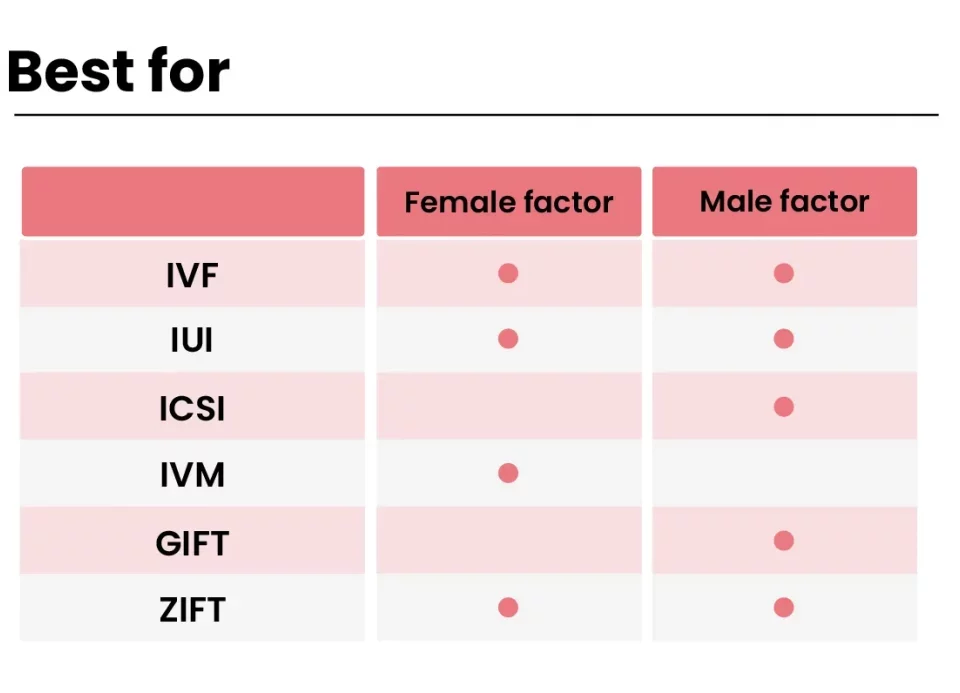
What Is the IVF Act?
April 15, 2025
What Is the Meaning of IVF? A Deep Dive into Fertility, Science, and Hope
April 15, 2025Is IVF Illegal in Alabama?

Is IVF Illegal in Alabama?
In vitro fertilization (IVF) has been a lifeline for countless families hoping to have children, but recent events in Alabama have left many wondering about its legal status. If you’re asking, “Is IVF illegal in Alabama?” you’re not alone—it’s a question that’s been swirling around since a major court ruling shook things up in 2024. Spoiler alert: IVF isn’t outright illegal in Alabama today, but the story behind it is more complicated than a simple yes or no. Let’s dive into what’s really going on, how it affects people like you, and what the future might hold.
The Alabama IVF Rollercoaster: What Happened?
Picture this: it’s February 2024, and the Alabama Supreme Court drops a bombshell. They rule that frozen embryos created through IVF are legally considered “children” under the state’s Wrongful Death of a Minor Act. This decision came after a wild incident where a hospital patient accidentally destroyed some embryos by dropping them on the floor. Three couples sued, and the court’s ruling flipped the script on how IVF is viewed in Alabama.
Suddenly, clinics hit the brakes. Places like the University of Alabama at Birmingham (UAB) paused IVF treatments, worried that doctors or patients could face lawsuits—or worse, criminal charges—if embryos were damaged or discarded. For a hot minute, it felt like IVF might vanish from the state entirely. Families in the middle of treatments were left hanging, unsure if they’d ever hold the baby they’d been dreaming of.
But then, Alabama lawmakers scrambled into action. By March 2024, Governor Kay Ivey signed a new law giving IVF providers and patients immunity from civil and criminal liability for embryo loss during the process. Clinics reopened their doors, and IVF got a green light—at least for now. So, to answer the big question: no, IVF isn’t illegal in Alabama as of April 1, 2025. But that doesn’t mean the dust has fully settled.
Why the Confusion? Breaking Down the Legal Drama
The whole mess started with that 2024 court ruling, and it’s worth understanding why it caused such a stir. Alabama’s Supreme Court leaned on an old law from 1872 about wrongful death, plus a newer “Sanctity of Life” amendment in the state constitution, to say embryos are people. Chief Justice Tom Parker even threw in some religious flair, quoting the Bible and arguing that life begins at conception—frozen or not.
This wasn’t just legal jargon; it had real-world fallout. IVF involves creating multiple embryos to boost the chances of a successful pregnancy. Some get implanted, some get frozen for later, and others might be discarded if they’re not viable. If every embryo is a “child,” tossing one out could technically be seen as breaking the law. Clinics freaked out, and patients were caught in the crossfire.
The new immunity law patched things up, but it’s more of a Band-Aid than a permanent fix. It protects doctors and patients from lawsuits or prosecution, but it doesn’t undo the court’s stance that embryos are children. That leaves a big question mark hanging over IVF’s long-term future in Alabama.
How Does IVF Work, Anyway?
If you’re new to this, IVF might sound like sci-fi magic, but it’s pretty straightforward. Here’s the rundown:
- Step 1: Stimulation – A person takes hormones to produce multiple eggs (instead of the usual one per month).
- Step 2: Retrieval – Doctors collect those eggs in a quick procedure.
- Step 3: Fertilization – In a lab, eggs meet sperm, and embryos start to form.
- Step 4: Transfer – One or more embryos are placed in the uterus, hoping for a pregnancy.
- Step 5: Storage or Discard – Extra embryos can be frozen for later or discarded if they’re not needed or viable.
It’s a process that’s helped nearly 100,000 babies be born in the U.S. each year. But in Alabama, that last step—discarding embryos—became a legal minefield for a while. Even now, with the immunity law, some clinics are extra cautious about how they handle embryos.
What’s the Real Impact on Families?
Let’s get personal for a second. Imagine you’re someone like Andrea Edwards, a 38-year-old mom from Pennsylvania who used IVF to have her son. She told The 19th that Alabama’s ruling made her nervous, even though she’s not in the state. She’s got two frozen embryos left and isn’t sure what she’d do if rules tightened up nationwide. Now, think about folks actually living in Alabama during that chaotic pause in 2024—people who had egg retrievals scheduled or embryos ready to transfer. For them, it wasn’t just news; it was their whole world on hold.
The numbers back this up. About 2% of U.S. births come from IVF—that’s a huge chunk of families. In Alabama alone, thousands rely on it, especially couples dealing with infertility or genetic issues like balanced translocations (a condition affecting about 0.25% of people, or roughly 12,500 Alabamians). When clinics paused, those dreams got delayed, and the emotional toll was brutal.
✔️ Good News: The immunity law got IVF back on track fast.
❌ Bad News: The legal gray area still spooks some providers, and patients worry about what’s next.
Could IVF Be at Risk Again in Alabama?
Here’s where things get tricky. The 2024 immunity law is a “stopgap,” meaning it’s temporary. Lawmakers like Senator Tim Melson have admitted they’re still wrestling with bigger questions—like when life begins and how to balance that with IVF’s practical needs. Some anti-abortion groups, who cheered the embryo ruling, might push to limit IVF further, arguing it “destroys lives” when embryos aren’t used.
On the flip side, IVF has bipartisan support. Even former President Trump called the Alabama ruling a mistake, and local leaders like Senator Tommy Tuberville vowed to keep it legal. Public opinion matters too—most folks see IVF as a way to create life, not end it. But if courts or lawmakers shift gears, Alabama could see tighter rules, like limits on how many embryos you can create or store.
Quick Poll: What Do You Think?
- Should Alabama keep IVF fully legal with no restrictions?
- Should there be rules about embryo creation and disposal?
- Should IVF be left alone as a personal choice?
Drop your vote in your head (or chat about it with a friend)—it’s a hot topic worth mulling over!
The Bigger Picture: IVF Across the U.S.
Alabama’s drama didn’t happen in a vacuum. Since the U.S. Supreme Court overturned Roe v. Wade in 2022, reproductive rights have been a hot potato. Eleven states have “fetal personhood” laws, which could theoretically mess with IVF if courts interpret embryos as people. Take Arizona—it’s got a broad personhood law on hold in court. If it sticks, IVF could face the same chaos Alabama did.
But here’s the twist: restricting IVF isn’t popular. A 2024 poll by the American Society for Reproductive Medicine found 70% of Americans support access to IVF, cutting across party lines. That’s why Alabama lawmakers moved so fast to protect it—they heard the outcry loud and clear. Still, scientists and doctors worry that other states might follow Alabama’s lead, especially if anti-abortion momentum keeps growing.
Unique Angle #1: The Science Nobody’s Talking About
One thing missing from most articles? The nitty-gritty science of why IVF needs multiple embryos. It’s not just about upping your odds—there’s hard data behind it. A 2023 study in Fertility and Sterility showed that only about 60% of fertilized eggs turn into viable embryos. Of those, just 20-40% implant successfully, depending on age and health. That’s why doctors aim for extras—it’s not wasteful; it’s practical.
In Alabama’s case, if rules capped embryo creation at one per cycle (to avoid “discarding children”), success rates could tank. Patients might need multiple rounds, jacking up costs (a single cycle runs $12,000-$20,000) and emotional stress. Nobody’s crunching those numbers in the headlines, but they matter if you’re the one in the clinic.
Unique Angle #2: The Emotional Cost of Uncertainty
Another overlooked piece: the mental health hit. When UAB paused IVF, patients like Corinn O’Brien—a mom pregnant via IVF—told NPR the limbo was “devastating.” Think about it: you’ve got shots, appointments, and hope pinned on this process, and then—bam—it’s yanked away. A 2024 survey by RESOLVE: The National Infertility Association found 63% of IVF patients reported anxiety spikes when legal threats loomed. Alabama’s back-and-forth isn’t just policy—it’s people’s peace of mind.
Coping Checklist: If IVF Stress Hits You
✔️ Talk to a friend who gets it—venting helps.
✔️ Join an online support group (like RESOLVE’s forums).
✔️ Ask your clinic for updates—they’re in the loop.
❌ Don’t doom-scroll news headlines; stick to facts.
Unique Angle #3: The Economic Ripple Effect
Here’s a curveball: IVF isn’t just personal—it’s big business. Globally, the IVF market was worth $23 billion in 2022, per Spherical Insights, and it’s headed to $39 billion by 2032. In Alabama, clinics employ doctors, nurses, and lab techs. When services paused, jobs wobbled, and local economies felt the pinch. If IVF faced long-term limits, rural areas—where clinics are already scarce—could lose access entirely, widening health gaps. That’s a domino effect you won’t find in most write-ups.
Practical Tips: Navigating IVF in Alabama Today
So, you’re in Alabama and thinking about IVF. What do you do? Here’s a game plan based on the latest scoop:
- Check Clinic Status – Call ahead. Most reopened post-immunity law, but some, like Mobile Infirmary’s Center for Reproductive Medicine, hesitated without clearer rules.
- Know Your Rights – The 2024 law shields you and your doctor from lawsuits over embryo loss. Keep that in your back pocket.
- Plan for Uncertainty – Freeze embryos out of state if you’re nervous about future changes (some did this during the 2024 scare).
- Ask About Costs – If rules tighten, cycles might get pricier. Get a quote now and budget extra.
- Stay Informed – Follow local news or groups like Fight for Alabama Families for updates.
What’s Next for IVF in Alabama?
Peering into the crystal ball, IVF’s fate in Alabama hinges on a few wild cards. Will the Supreme Court revisit the embryo ruling? Will lawmakers craft a permanent fix? Will public pressure keep it safe? One clue: Google Trends shows “IVF Alabama” searches spiked in early 2025, meaning people are still on edge. On X, folks are split—some cheer the immunity law, others fret it’s not enough.
My take? IVF’s here to stay, but it’ll keep dodging curveballs. Alabama’s story shows how fast things can shift—and how much families care. Take Elizabeth Carr, the first U.S. IVF baby, born in 1981. She told TIME in 2024 that sharing her story helps people see IVF’s human side. Maybe that’s the key: keeping the focus on real people, not just courtroom debates.
Mini Quiz: Test Your IVF Smarts!
- What year did Alabama’s Supreme Court call embryos “children”?
- A) 2022 B) 2023 C) 2024
- True or False: IVF is fully illegal in Alabama today.
- About how many U.S. babies are born via IVF yearly?
- A) 10,000 B) 50,000 C) 100,000
(Answers: 1-C, 2-False, 3-C. How’d you do?)
Wrapping It Up: Hope, Hurdles, and You
IVF in Alabama isn’t illegal, but it’s had a wild ride. From a court ruling that rattled clinics to a quick-fix law that steadied the ship, it’s a saga of hope tangled with uncertainty. Families keep pushing forward, science keeps proving its worth, and the state keeps wrestling with big questions. Whether you’re planning IVF, cheering it on, or just curious, one thing’s clear: this isn’t the end of the story. Stay tuned—Alabama’s next chapter could surprise us all.

